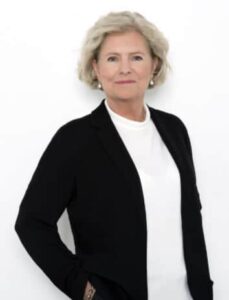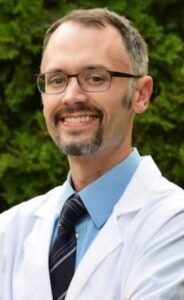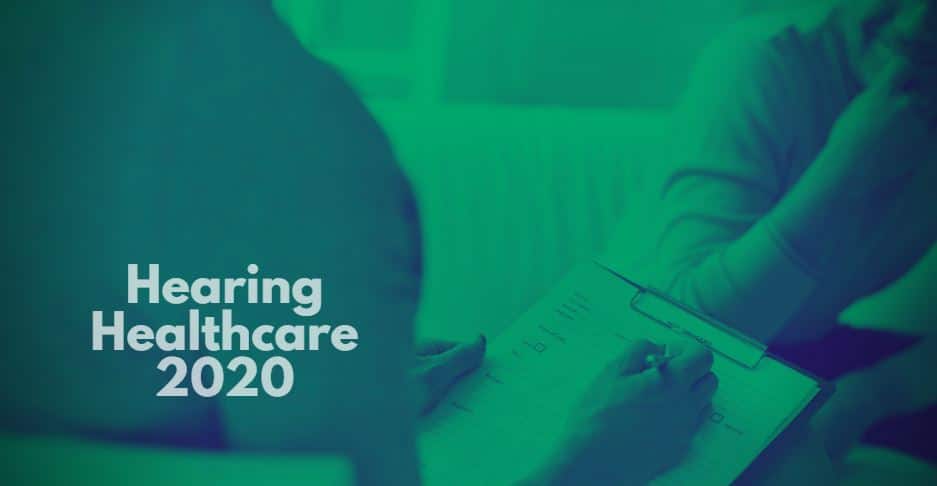Hearing Healthcare 2020 is a column where we explore the forces behind the changing landscape and disruptions impacting the hearing healthcare industry.
This week, HHTM President and CEO, Kevin Liebe, interviews Lise Lotte Bundesen, the Managing Director of the Ida Institute – an independent, non-profit organization that works with hearing care professionals and patients from around the world to develop and integrate person-centered practice in hearing care.
The patient-centered care (PCC) approach advocated by the Ida Institute has been growing in popularity in recent years and has been adopted by organizations and clinicians across the globe.
KL: To start, could you provide readers with some of your background and the kind of work you’re doing at the Ida Institute
LLB: Sure. I spent my early career in the US working in communications. When I returned to Denmark, I had various leadership roles within healthcare at Novo Nordisk where I spent 14 years. The positions were mainly concerned with communication, training, ethics, environmental affairs, and social responsibility. That experience was really valuable when I was entrusted with setting up the Ida Institute in 2007 with a grant from the Demant Foundation.
Our goal at Ida is to help people deliver and receive better care. We want to build a community that embraces person-centered care. To this end, we work with people from around the world to develop tools and resources that can help professionals develop person-centered practices and support people on their journey towards better hearing.
KL: While most hearing professionals would like to believe they are providing person-centered care (PCC) in daily practice, how would you define what it means to practice PCC?
LLB: You know, we use the term “practicing person-centered care,” but maybe it would be more accurate to say someone is person-centered because it isn’t something that is turned off and on.
Person-centered care needs to be part of every interaction a hearing care professional has with their client, from pre- to post-appointment. It means putting the needs and priorities of your client at the heart of their treatment and including the people closest to the person with hearing loss. It means making sure your client has a voice in the process and partnering with them to arrive at the best solutions for them.
KL: We’ve seen growing interest in PCC in the audiology and hearing healthcare community in recent years. What sort of practical benefits does PCC hold for the clinician?
LLB: I think the most surprising benefit to many hearing care professionals is that person-centered care saves time. It makes appointments more efficient because being tuned in to your clients’ priorities and experiences helps you focus on what really matters to them. And that leads to other benefits such as clients being more likely to embrace treatment recommendations – partially because they were involved in making them – and being more satisfied with the results. We also know that a person-centered approach often leads to people wearing their hearing aids more, which dominos into greater well-being overall.
There are also benefits for clinic staff who report feeling more satisfied with their work, which, we can theorize, leads to less turn-over and other business benefits. When you consider all the benefits it’s not surprising that interest is building.
KL: Why do you feel that PCC is not routinely practiced in most hearing clinics today? Is it just a lack of knowledge?
LLB: I think most clinics do put their clients at the heart of what they do and are doing a great job. And many are really trying to be person-centered, but maybe haven’t established a structure or system that lets them be consistent with it across staff, appointments, and clients. What we try to do at Ida is make creating that structure or process easier. We have developed a lot of easy-to-use tools that help guide conversations and various aspects of appointments. Some even help professionals gather insights from their clients ahead of time.
Our suite of Telecare tools, for example, can be sent to clients before appointments to help prepare them and the professional. And our Motivation tools guide professionals in finding out how important it is to their client to act on their hearing loss and gives them a sense of where they are on their hearing journey.
We also have some wonderful pediatric tools developed in collaboration with renowned experts in the field.
KL: Ida recently launched the Future Hearing Journeys project. Can you please tell us a little bit about this initiative and what you plan to accomplish with it?
LLB: Hearing care is changing due to new technologies, new delivery models, changing consumer expectations and other trends in healthcare and society at large. Now, COVID-19 is accelerating how quickly things are changing and shaping them in unexpected ways.
With Future Hearing Journeys, we want to look closely at the social, technological, economic, and political trends that are impacting hearing care and predict how user needs and delivery models may be affected in order to help people navigate future realities.
Our team is currently conducting surveys, interviews, and focus groups to get the thoughts and experiences of people with hearing loss, hearing care professionals, academics, advocacy groups, and people working in hearing care around the world. We’ve had an incredible response to our interview requests and our survey, which had well over 1400 respondents.
Once we’ve gathered the insights, we’ll collaborate with more experts, including those at the Copenhagen Institute for Future Studies, to arrive at scenarios we can use as starting points to develop resources that will help people better navigate the new hearing care landscape.
KL: What professional resources can you recommend to those interested to learn more about implementing PCC in their clinic?
LLB: A good first stop would be the Ida Learning Hall where we have courses on just that. Getting Started with Person-Centered Care is a good foundation course and Applying PCC in the Appointment goes a little deeper, with the Four Habits and Calgary-Cambridge Guides providing the framework for the course.
Professionals may also be interested in the Inspired by Ida program which, in addition to training, awards a badge they can use to announce their dedication to PCC, a press kit to help them spread the word, and the inclusion of their new status on some hearing locator sites.
All of our tools also have person-centered objectives, whether they are understanding your client’s experiences, as Living Well does, giving clear explanations and information, as My Hearing Explained helps with, or involving the people closest to your client in the appointment, as our Communication Partner tools do. And all of our courses and tools are free for anyone to use.
KL: Thank you for taking the time to share your perspective with us today. We look forward to future updates on the work you’re doing at Ida.
LLB: Thanks so much for your interest.
 Lise Lotte Bundesen is the Managing Director of the Ida Institute – an independent, non-profit organization working with hearing care professionals and patients from around the world to develop and integrate person-centered practice in hearing care. Ms. Bundesen was the architect behind the creation of the institute in 2007. She has extensive experience in the fields of communication, education/training, ethics and social responsibility and has worked in the health-care arena for many years, specifically for the multinational company Novo Nordisk.
Lise Lotte Bundesen is the Managing Director of the Ida Institute – an independent, non-profit organization working with hearing care professionals and patients from around the world to develop and integrate person-centered practice in hearing care. Ms. Bundesen was the architect behind the creation of the institute in 2007. She has extensive experience in the fields of communication, education/training, ethics and social responsibility and has worked in the health-care arena for many years, specifically for the multinational company Novo Nordisk.
 Kevin Liebe, AuD, is President and CEO of Hearing Health & Technology Matters (HHTM). He also serves as a Scientific Advisor to Neosensory, a Silicon Valley based startup pioneering experiences in sensory augmentation. As an audiologist, Kevin has experience in variety of settings, including private practice, ENT, and industry. He is a past president and board member of the Washington State Academy of Audiology
Kevin Liebe, AuD, is President and CEO of Hearing Health & Technology Matters (HHTM). He also serves as a Scientific Advisor to Neosensory, a Silicon Valley based startup pioneering experiences in sensory augmentation. As an audiologist, Kevin has experience in variety of settings, including private practice, ENT, and industry. He is a past president and board member of the Washington State Academy of Audiology







